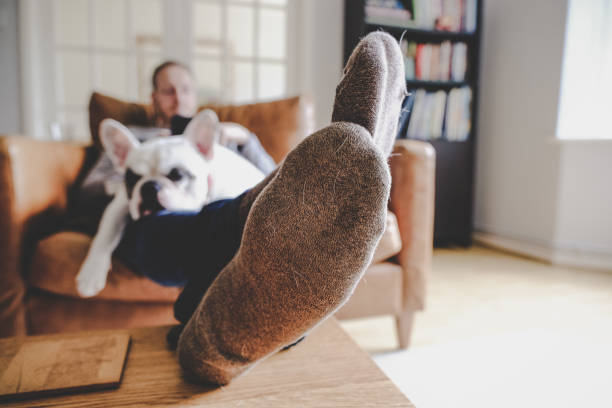
Comfort often gets a bad rap in the nonprofit world. It’s easy to see why—with so many people facing hardships, some argue that our own comfort should take a back seat. I’ve heard the subtle (and not-so-subtle) messages suggesting that if we enjoy comfort, we should feel guilty because others don’t. While this tactic might spur some people into action, it often relies on guilt, and I believe there’s a better way to inspire change.
Let me start with a confession: I’m American. I have a house, cars, more food than I can eat, and all the comforts of life. In fact, I can picture two of my favorite comfortable spots right now. One is my bed. Every night, I climb in and tell my beautiful wife, “I love our bed.” It’s where I sleep deeply and wake refreshed. The other is a corner spot on my couch where I read my Bible, reflect on the day ahead, and give thanks for the day before. I could sit there for hours. Chances are, you have places like these too. Maybe you’re in one of them now as you’re reading this. Or maybe you’re thinking about one.
But here’s the rub: like me, you might have been made to feel bad about your comfort because others in the world don’t have the same. It’s a common strategy used to stir up compassion—the idea that if you feel guilty enough, you’ll take action. Think of those Sarah McLachlan animal cruelty ads—the ones that leave you heartbroken and scrambling for the remote. While guilt and emotion can be powerful triggers, I don’t believe they’re the best tools for engaging reasonable, compassionate, and intelligent donors.
Instead, I believe comfort is a gift, and it can be used as a catalyst for doing good. To back me up, let me share the words of an ancient spiritual author named Paul. In 2 Corinthians 1:3-4, he writes:
“Praise be to the God and Father of our Lord Jesus Christ, the Father of compassion and the God of all comfort, who comforts us in all our troubles, so that we can comfort those in any trouble with the comfort we ourselves receive from God.”
In essence, God is the source of all comfort. He comforts us not just for our benefit, but so that we can extend that comfort to others. Think about that for a moment: we are best equipped to comfort others when we have experienced comfort ourselves. And no one in the world understands comfort quite like we do in the United States.
This is why I believe it’s better to comfort others from a place of comfort than from discomfort. When we give out of guilt, the gifts are often received with shame. But when we give out of joy, gratitude, and abundance, those gifts are received with joy and hope. Imagine the difference it would make if, instead of feeling ashamed of our blessings, we used them to spread hope.
At Hope and Horizons, that’s exactly what we aim to do. When we present a brand-new home to a displaced family, the experience is beyond words. Logically, we know we’re making a difference. But when you’re there, placing the keys in their hands, watching them step into their new home for the first time, and seeing the joy, relief, and hope on their faces—it’s indescribable. Families will gather on their own couches, children will climb into warm beds, neighbors will share meals around dining tables, and those homes will become places where hope and comfort are multiplied.
Comfort isn’t the enemy. It’s a tool—a reminder of what we’re striving to share with others. As we lean into our comfort and use it to bless others, we can make the world a better place. Together, we can spread love, share comfort, and multiply hope by building homes for displaced families.
I invite you to join us in this mission. Visit our family page to see the faces of those you can help create a new future for. Let’s spread the love and share the comfort we’ve been given—together, we can make a difference.
